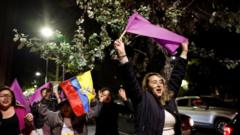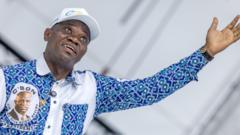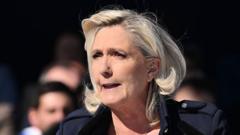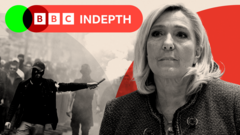Gen. Brice Oligui Nguema has been declared the winner of Gabon's presidential election, marking the end of a 60-year dynasty. Securing more than 90% of the votes, Nguema's election raises concerns over political fairness and is viewed as a consolidation of military power in a nation where poverty persists despite its resource wealth.
Gabon’s Coup Leader Secures Landslide Victory in Presidential Election
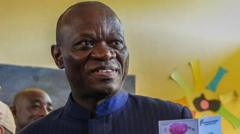
Gabon’s Coup Leader Secures Landslide Victory in Presidential Election
General Brice Oligui Nguema, the military ruler following a coup in 2023, has won Gabon's presidential election with over 90% of the vote—a historic shift following decades of Bongo family rule.
Gabon’s military leader, General Brice Oligui Nguema, has emerged victorious in Saturday's presidential election, garnering more than 90% of the vote according to provisional results. His victory signals a dramatic departure from the Bongo family’s 60-year rule, which ended with the coup he led in 2023. The Interior Minister, Hermann Immongault, confirmed that Nguema received 575,222 votes, while his closest rival, Alain Claude Bilie-by-Nze, managed only about 3% of the votes cast.
Despite a high voter turnout of over 70%, critics have raised alarms regarding the electoral process, arguing that the newly established constitution and electoral codes favor Nguema, allowing him a straightforward ascent to power. Notably, several opposition figures who could have posed significant challenges were barred from competing.
In addition to consolidating power, Nguema's election grants him a seven-year mandate to address the corruption and mismanagement that marked the preceding regime. His supporters view him as a reformer—an image bolstered by his background as the popular former commander of the Republican Guard.
However, some voters, including Bilie-by-Nze, have reported irregularities in the election process, casting doubts on the fairness and integrity of the electoral outcomes. The nation remains beset by poverty, with about 35% of Gabonese citizens living on less than $2 a day, despite the country’s abundant oil and timber resources. The implications of Nguema's leadership will likely unfold against a backdrop of both hope for reform and continued skepticism about the military's hold on power.



